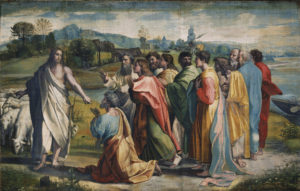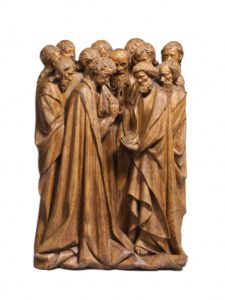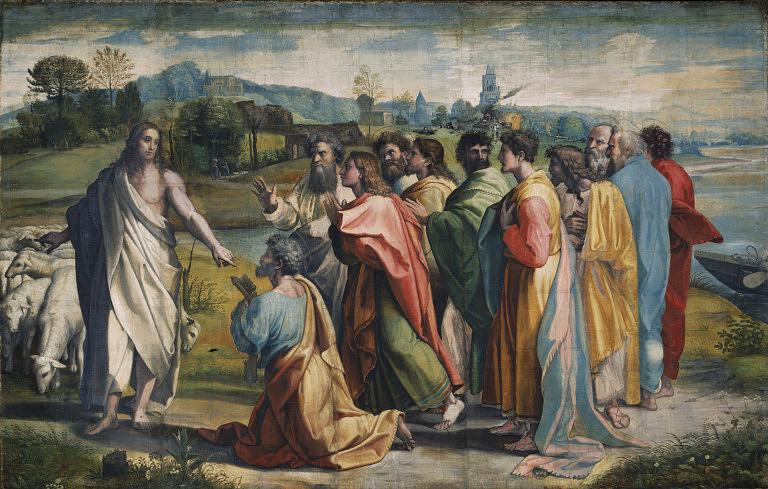Apostles preside over the execution of the Great Commission. Unlike the lesser commission presided over by Jesus because he was physically present on earth; the apostles supervise the Great Commission on behalf of Jesus Christ. The scriptures place the apostles as the most senior church officials; therefore, the implication is clear. Further, from the roles that the apostles played in the New Testament, it is also clear that apostles provide spiritual guidance for the Christian church.
In modern times, the title and role of Apostle are controversial because of the sensitivity that church organizations associate with that name. Significant numbers of Christians are not convinced that modern men should attempt to equate themselves to the original twelve apostles. The original twelve apostles are the disciples of Jesus Christ that were closest to him on earth, and apostle Paul, whose commission was unanimously approved by the church as worthy to join the ranks of the disciples. Therefore, the controversy rages around the worthiness of individuals in our dispensation to call themselves apostles.
Qualifications of apostles
The Great Commission is still relevant today. Luckily, the agreement is universal. The churches and persons who use the title of apostle today insist that the role of apostles as leaders of the Christian missionaries did not end with the death of the original twelve (Acts 2:42). They insist that the Great Commission will always demand and deserve apostolic guidance. The Great Commission is the charge by Jesus Christ for Christians to continue to increase membership of the sect through preaching, deliverance from oppression, baptizing of new converts and stabilizing the populations of the established church. Presiding over this charge requires spiritual maturity, which apostles must possess as they rise through the ranks.
 Many Christians are not comfortable with the spiritual maturity requirement because they believe that only Jesus Christ can give those gifts and that he gave it to the apostles through physical contact, even to apostle Paul. They claim that since modern men do not have physical contact with Jesus, such powers are not in existence.
Many Christians are not comfortable with the spiritual maturity requirement because they believe that only Jesus Christ can give those gifts and that he gave it to the apostles through physical contact, even to apostle Paul. They claim that since modern men do not have physical contact with Jesus, such powers are not in existence.
The sects that believe in the apostolic leadership claim that Jesus indicated that the Great Commission requires the exercise of spiritual gifts. Jesus promised Christians the gift of the Holy Spirit for the work of the commission and fulfilled the promise at the Pentecost. Further, Jesus provided for the office of the apostles and laid out the job description. Therefore, Jesus – the head of the Church did not mean that only twelve people would become apostles because the church did not end with the twelve apostles. Other apostles continue to lead the work of the Great Commission as the church expands and various sects emerge.
Apostle’s job description
The scriptures expect the officeholders to equip the saints for service as they prepare for the commission. They must work to expand church membership by adding new converts to the faith. Then, the scriptures instruct the other offices to devote themselves to the teaching of the apostles. Therefore, the apostle is the leader of the officer corps. Further, they provide guidance to the entire church.
 Since the scriptures expect the church to spend time learning the instructions given by the apostles, it is clear that the apostles determine the doctrine of the church (Colossians 2:8; Ephesians 4:13-16).
Since the scriptures expect the church to spend time learning the instructions given by the apostles, it is clear that the apostles determine the doctrine of the church (Colossians 2:8; Ephesians 4:13-16).
The many trips of Peter from Jerusalem to visit, pray with and baptize many converts in many places are evidence of how apostles perform this role. They monitor the operations of the front-line evangelists to prove observance of the principles of the teaching of Jesus Christ. The letters of Paul, which we call the epistles to various cities and Christian communities, form another body of evidence for the roles played by the apostles. Their pronouncements provided guidance to various groups, and essentially, those pronouncements equaled law.
Apostles and the Church
Both sides of the Holy Spirit argument agree that for the apostles to carry out their jobs, they must stabilize the established church while providing support for evangelists in the field (Acts 20:2). The commission the people that go on specific missions, they provide spiritual guidance for the entire project, they monitor the work in the evangelical outreaches for conformity with church doctrine and they teach the mind of God to the entire church as they coordinate the various aspects of the Great Commission. They carry spiritual responsibilities for the directives and principles of the church.






